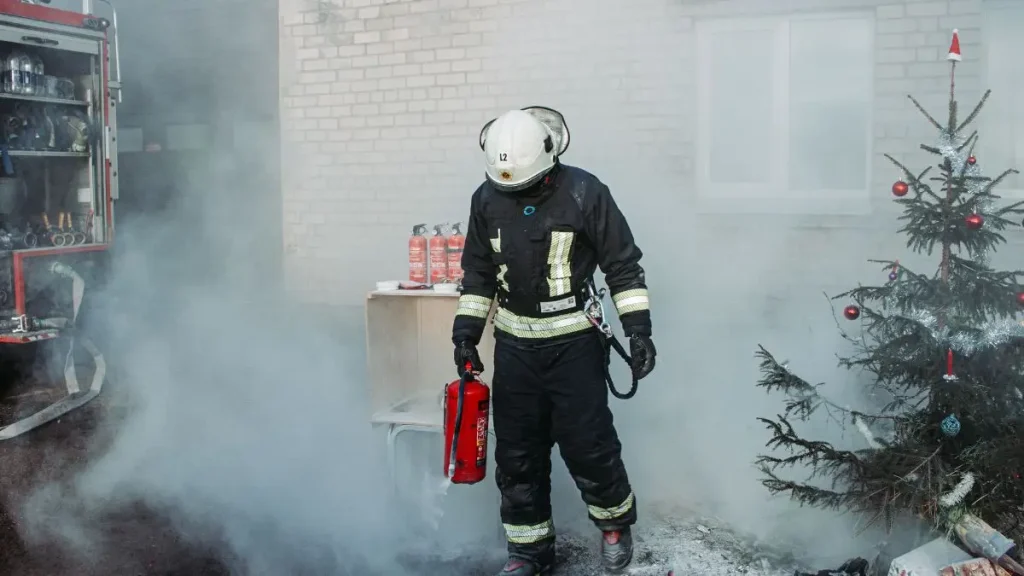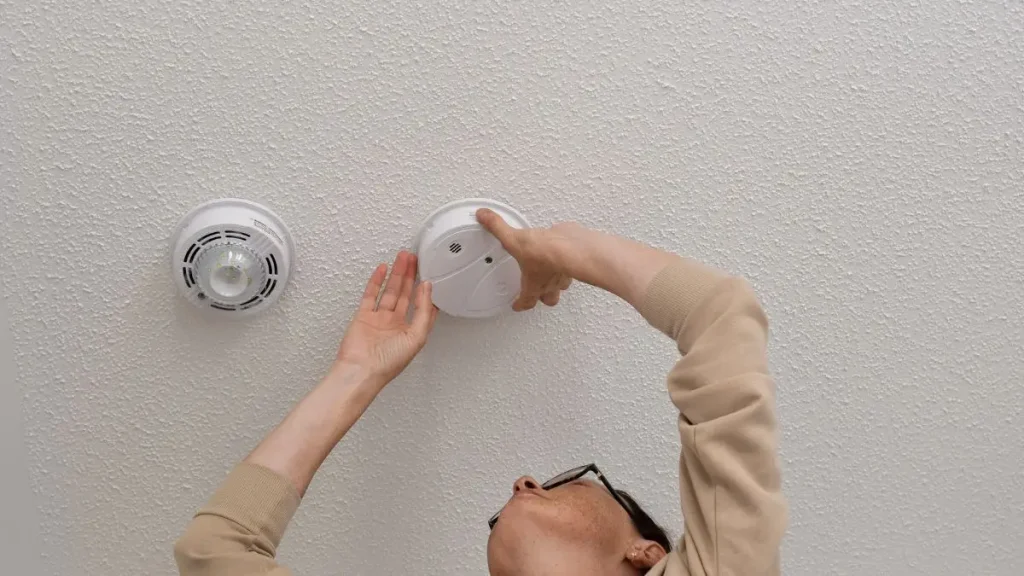Alabama Home Fire Kills 5-Year-Old Boy, Children Were Home Alone
I can’t get the image out of my head: a five-year-old pulled from his burning home while his twelve-year-old brother stood outside, helpless after trying everything to save him. This wasn’t some far-off story—it happened Thursday night on Sharon Drive in Mobile, Alabama.
According to fire officials, the boys were home alone when the flames erupted just before midnight. The older child woke to the sound of the smoke alarm and rushed to his brother’s room, only to find the hallway swallowed by fire. He tried to break in through a window, banging desperately, but couldn’t get his brother’s attention.
Neighbors saw the chaos unfold. One of them described power lines sparking, bushes catching fire, and the frantic wait for firefighters. Another recalled praying aloud as crews carried the boy out in their arms and worked CPR on the lawn. Despite their efforts, the child was pronounced dead at the hospital.
Mobile Fire-Rescue arrived only a minute after being dispatched. They contained the fire within 10–12 minutes, but by then the damage was done. Investigators believe the blaze likely started in the kitchen—there was still a pot left on the stove.
What strikes me most is the courage of that twelve-year-old. He didn’t just run—he tried, with everything in him, to save his brother. That kind of bravery is unforgettable.
As you read this, I want you to picture your own home. Do your smoke alarms actually work? Would your kids know what to do if the hallway filled with smoke tonight? These aren’t comfortable questions, but they’re the ones this tragedy forces us to ask.
What about you—when was the last time you checked your smoke alarm or talked through a fire escape plan with your family?
Children Left Home Alone: The Legal & Safety Debate in Alabama

What makes this story even harder to process is the fact that the children were home alone when the fire started. According to ABC3340, their parents were out at dinner that night, leaving the 12-year-old in charge of his younger brother.
Now, here’s the tricky part—Alabama has no specific law that sets a minimum age for leaving kids home by themselves. The state leaves it up to the parents’ judgment. On paper, that sounds flexible. In reality, it opens the door to situations where children may face risks they’re not ready for.
When I think about this case, I don’t just see a tragic fire—I see the bigger question: should states define a clear legal standard? A twelve-year-old might be mature in some situations, but dealing with a fire? That’s too much responsibility for anyone so young.
This isn’t about blaming parents in the middle of grief. It’s about acknowledging the gap between what the law says and what children can realistically handle in an emergency. And if we’re honest, many of us probably assume, “It’ll be fine just this once.” Tragedies like this prove how dangerous that assumption can be.
Even experienced fire departments can face challenging blazes, as seen in the Hawaii Kai 2-alarm home fire, emphasizing the urgency of early detection and proper alarms.
Do you think Alabama—and other states—should have a legal age requirement for leaving kids alone, or should it always stay a parent’s call?
Cause of the Fire: Early Findings & Ongoing Investigation
Investigators say the fire likely started in the kitchen. Firefighters found a pot still on the stove, which may have been the source of the flames, according to reports from AL. The official cause hasn’t been finalized, but all signs point to unattended cooking.
It’s worth noting that the smoke alarm played a crucial role that night. It woke up the 12-year-old, giving him a chance to escape. Without that alarm, this tragedy could have been even worse.
The Mobile Fire-Rescue Department said it took them about 10 to 12 minutes to knock down the blaze once they arrived. That’s fast in fire terms, but it highlights a sobering truth—when fire starts inside a home, you often have only a few minutes to get out safely.
For me, the biggest lesson here is this: everyday habits, like turning off the stove or double-checking kitchen appliances before leaving, can mean the difference between life and death.
Be honest—how many times have you left a pot on the stove thinking you’ll “come right back”?
Broader Context: Child Deaths in Home Fires Across the U.S.
This tragedy isn’t an isolated case—it’s part of a larger, heartbreaking pattern. According to the National Fire Protection Association, cooking is the leading cause of home fires and home-fire injuries in the U.S. Every year, hundreds of children lose their lives in residential fires, many of them preventable.
In Alabama alone, house fires involving children aren’t rare. Local news archives show repeated incidents over the past decade where kids didn’t survive—often because of unattended cooking, electrical issues, or a lack of working smoke alarms.
What makes these numbers even more painful is that the solutions are simple. Working smoke detectors cut the risk of dying in a house fire by nearly half. Yet surveys show many households either don’t have them installed or don’t test them regularly.
When we zoom out from one neighborhood in Mobile to the national picture, the message is clear: tragedies like this aren’t freak accidents—they’re warnings. And unless families change habits and communities push for stronger safety measures, the statistics will keep repeating.
Unfortunately, house fires can happen anywhere—like the Southeast Portland house fire that left three people homeless, showing how quickly a blaze can disrupt lives.”
Does your home have a working smoke alarm in every bedroom and hallway? If not, why wait?
Safety Lessons Every Parent Must Take from This Tragedy

I don’t want to just tell a sad story—I want you to walk away with something that could save your family. Here are a few takeaways every parent should think about after this fire:
- Check your smoke alarms. Test them monthly and replace batteries twice a year. If your alarm is older than 10 years, replace the whole unit.
- Never leave cooking unattended. Even stepping away for a “quick minute” can be enough for a kitchen fire to spread.
- Practice a fire escape plan. Kids should know two ways out of every room and a safe meeting spot outside.
- Talk to your kids. Older children need guidance on what they can and can’t handle when home alone. They should know never to go back inside a burning house.
- Review electrical safety. Don’t overload outlets or use damaged cords, and keep space heaters at least three feet from anything flammable.
I know some of this sounds basic. But in moments of crisis, it’s the basics that save lives. Families that drill these steps are far more likely to make it out alive.
Many families share safety tips and real-life stories in private WhatsApp groups to help each other stay prepared. You can find discussions there about fire drills, alarms, and family safety practices.
If you had to escape your house tonight, would your kids know what to do—or would they freeze?
Policy, Responsibility & Calls for Change
When something this tragic happens, people naturally ask—could it have been prevented, and what needs to change?
One obvious gap is Alabama’s lack of a defined minimum age for leaving kids home alone. Maybe this case won’t lead to a new law overnight, but it should spark a conversation among lawmakers, schools, and parents. Do we need clearer rules, or at least stronger public awareness about the risks?
Another angle is community responsibility. Fire safety programs often get overlooked until disaster strikes. Local fire departments run awareness campaigns, but funding is usually tight. More smoke alarm giveaways, more school fire safety sessions, and more neighborhood drills could go a long way in preventing future tragedies.
For me, this isn’t about pointing fingers—it’s about recognizing that every level of society, from parents to policymakers, has a role in keeping kids safe.
Similar incidents, such as the Chesterfield house fire that displaced three adults and one child, highlight the importance of community fire safety programs and preparedness.
Do you think laws should change, or is it more about education and community action?
Final Takeaway: A Community’s Grief, A Lesson for All
This story breaks your heart, but it also forces you to think. A twelve-year-old showed remarkable courage, neighbors prayed and panicked together, and first responders fought hard—but still, a child’s life was lost.
As painful as it is, we can’t let this just fade into another headline. Check your alarms. Talk to your kids about escape plans. Share this story with someone who might need a wake-up call.
I’ll leave you with this: if a fire broke out in your home tonight, would your family be ready—or would you be standing outside, wishing you had done more?
So tell me—what’s the first safety step you’re going to take after reading this?
Disclaimer: The details in this article are based on reports and official statements from the Mobile Fire-Rescue Department. The investigation into the fire is still ongoing, and some facts may change as new information emerges. This article is intended for informational and safety awareness purposes only.


